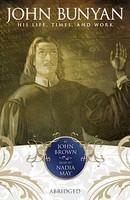
Book Summary
This book analyses temporal ideologies and expressions of historicity in South Asia in the early modern and modern periods, with reference to a a oereligious imaginarya: a way of conceiving and structuring the world within the conceptual and imaginative traditions of the religious. Providing a space for exploration of the multiple understandings of temporality, historicity, and the past that informed the historical imagination in various kinds of representations - historiographical and literary texts, objects, hagiography, and religious canonical literature - the chapters represent new scholarship from some of the brightest young scholars in the study of South Asian history, literature, and religions. Chapters address the contributing forces and comparative implications of the formation of religious and communitarian sensibilities as expressed through the imagination of the past, and suggest how these relate to each other within and across traditions in South Asia in the early modern period. What it means to represent the past in South Asian pre-colonial modes and, in some cases, through the transition into a colonial modernity, is considered in the analysis. Further, and in very different ways, the chapters examine how religious subjectivities are formed and informed in relation to historical and temporal imaginaries. By bringing diverse materials together, this book presents new commonalities and distinctions that can inform a larger understanding of how religion and other cultural formations impinge on the concept of temporality, and the representation of it as history.
Book Details
| Book Name | Time, History And The Religious Imaginary In South Asia |
| Author | Anne Murphy |
| Publisher | Routledge (Jul 2011) |
| ISBN | 9780415595971 |
| Pages | 224 |
| Language | English |
| Price | 6386 |








